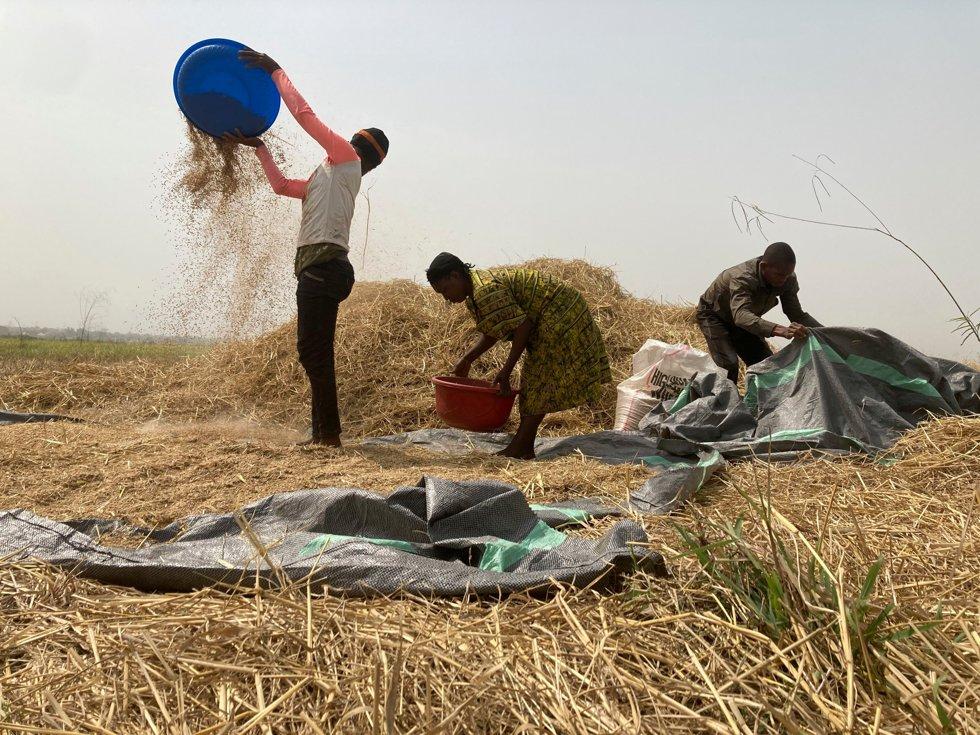The decarbonisation of the world economy will take center stage during the UN COP27 climate talks in Egypt next month. As oil is phased out, the world will need more and more metals used in cleaner technology. That is why the eyes of the world are now on Africa, where many countries have soils rich in manganese, cobalt, nickel and lithium, very important ingredients in cleaner technology.
The Moanda region of Gabon alone contains up to a quarter of the known global reserves of manganese. This was stated by Compagnie Miniere de l’Ogooue (Comilog), a subsidiary of the French group Eramet, which extracts manganese here.
Countless studies show that the exploitation of resources in Africa is followed by a long and dark history of unjust distribution of wealth, exploitation of labor, damage to the environment and violations of human rights.
It does not lie deeply
In Garbon, however, expectations are high.
– We are lucky here in Moanda. We find manganese about five to six meters below the surface, says mine director Olivier Kassibi. About 36 tons of manganese are taken from the mine here every day.
Large excavators work hard in the desolate open pit landscape. With giant jaws, they tear the manganese and dump the mass onto the trucks with strong blows.
Manganese is element 25 of the periodic table. It has traditionally been perceived as a very useful substance, widely used in steel and alloys. But more recently, silver metal has become famous thanks to its new role in rechargeable batteries, which could help reduce the world’s reliance on fossil fuels.
The curse of oil
But expectations that the mining boom will lead to new prosperity among most people on the world’s poorest continent are not very high. On the other hand, the fear that oil extraction will be repeated in Africa is great.
In the oil-producing countries of Africa, black gold usually meant great wealth for a few with good connections – and therefore just as often a curse for the vast majority of the poor.
Much corruption has sucked money out of road, hospital and school projects. The damage to the environment was often all that was left for the local population.
Huge potential
– Africa’s mineral potential is enormous, says Rabah Arezki, the former African Development Bank chief economist.
– But, he adds – there is very little reason to believe that these values will benefit the African population. The management mechanisms are too poor for that, she believes.
New metal deposits follow one another at a breakneck pace and reserves are still unknown because so little exploration has been done so far.
The Australian company Firefinch Ltd, for example, was looking for gold in Goulamina, in southern Mali.
– When we were looking for gold, we came across lithium, says Seydou Semega, a geologist and local director of the company.
Firefinch created a local offshoot, Leo Lithium, and opened a lithium mine in the new year, a facility that companies believe could create 1,200 jobs and generate over $ 100 million annually for Mali in taxes and dividends. .
Simon Hay, director of Leo Lithium, believes that Africa can certainly be the most important source of lithium in the world.
It must have a social policy
Comilog, which has operated the Moanda mine since 1960, claims to have created 3,400 direct and 6,000 indirect jobs and contributed approximately $ 345 million annually to the national economy in various forms. In addition, the company has provided millions of dollars in health and education services to the population.
– A binding social policy is needed for this wealth to be shared, believes CEO Leod Paul Batolo.
Comilog also wishes to list its ecological principles, which include the rehabilitation and replanting of extraction sites, the decarbonisation of the energy mix of factories and also the setting of limits on the invasion of natural areas.
Missing value chain
A big problem is that Africa is usually used as a source of raw materials, but not for processing goods, says Gilles Lepesant, geographer at the French National Center for Scientific Research (CNRS).
– If the business is limited to mining and quarrying of minerals, Africa will not benefit from the energy transition in Europe. Investing in the value chain is absolutely necessary, he believes.
He identified Congo, which is thought to have half of the world’s cobalt reserves. The country is a good example of both opportunities and curses. Here, poorly regulated mining leads to severe environmental damage and also encourages child labor, a phenomenon that is difficult to deal with when many families depend on this income.
Requests from rich countries
When it comes to tropical forestry, many rich countries require traceability of timber and labor to reassure worried consumers at home.
Traceability is much more difficult to achieve for metals used in car batteries and other electronic gadgets, Lepesant believes.
– In many cases the metal is exported for refining to other countries, such as China, and then combined with other metals. Therefore, it becomes difficult to know if the cobalt you have on your production line actually comes from a mine in Congo, he points out.
Analyst Hugo Brennan from UK firm Verisk Maplecroft says African nations need to provide investment incentives while enforcing social and environmental standards. It is a very difficult balancing act.

